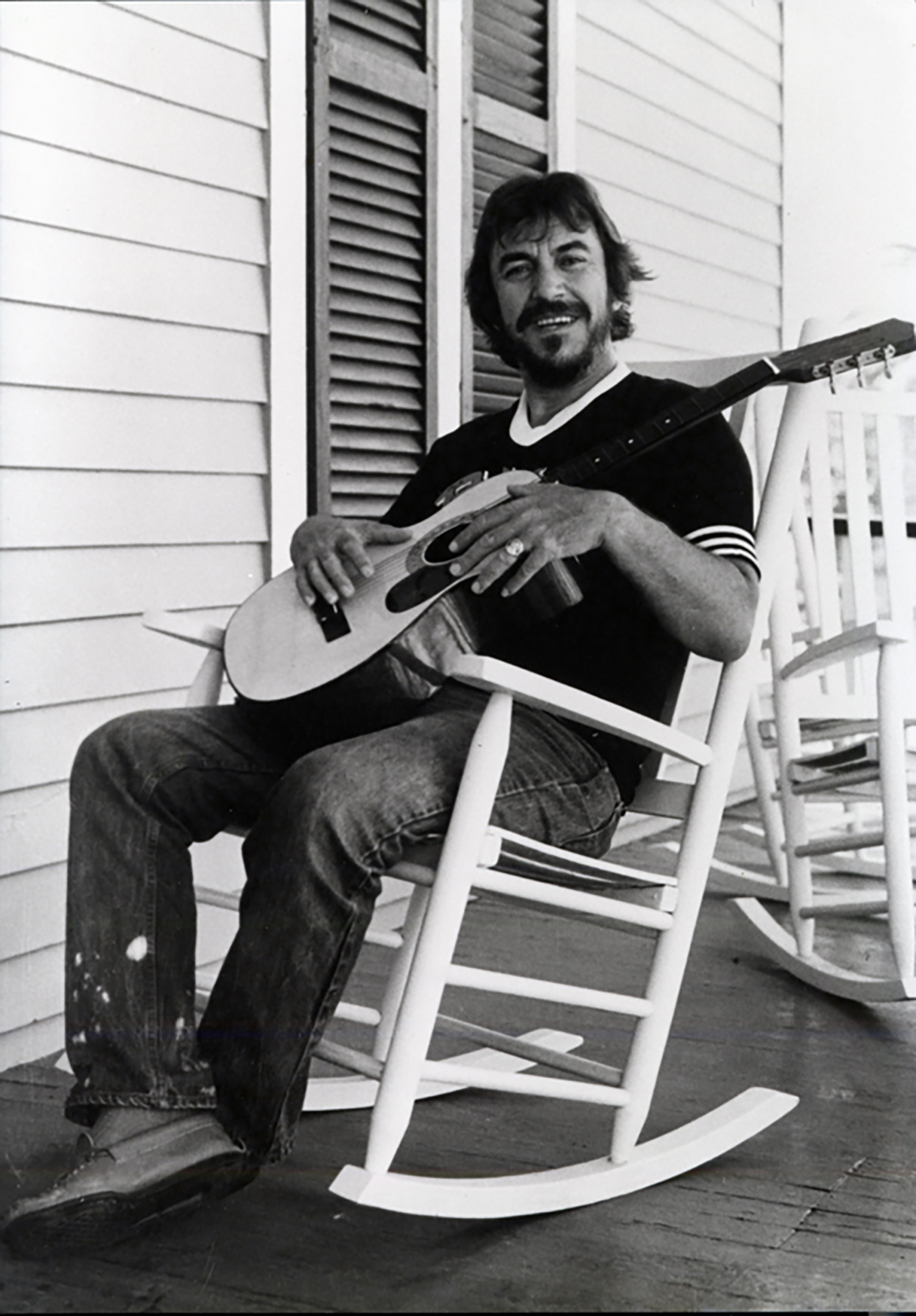
Any observation of New Orleans and the city’s contribution to the world of popular music would be incomplete without considering the influence of Bobby Charles on the city’s early hits of the fifties. Born Robert Charles Guidry in 1938 in Abbeville, Louisiana, Bobby helped to pioneer the south Louisiana musical genre known as swamp pop. Without him, there would be no "Walking To New Orleans" for Fats Domino and no "But I Do" for Clarence “Frogman” Henry. Both songs were nationwide hits, enhancing New Orleans’ reputation as a music centre; and securing Bobby's reputation as a songwriter.
Prior to those two songs, Bobby had already established himself firmly in rock ‘n’ roll history. Under his real name of Robert Charles Guidry, he wrote a song titled "See You Later Alligator." He was fourteen years old and singing for a small combo performing at his hometown high school dances. Somehow the song caught the attention of Leonard Chess whose Chicago record label, Chess Records, was emerging on the national music scene. Leonard arranged for the young Louisiana singer to record the song in the studio on North Rampart Street in New Orleans that was turning out hits for Fats Domino, Little Richard and others. The song gained immediate regional popularity. Chess signed Bobby, sight unseen, as an artist for his label and dropped Guidry from the artist name feeling that “Bobby Charles” would be more memorable. Bobby became the only white artist on an all-black label along with Chuck Berry, Muddy Waters, Bo Diddley, Willie Dixon and other Chess artists, and went on to have moderate success as an artist for Chess while continuing to grow as a songwriter.
At the same time, Bill Haley was establishing himself as the father of rock ‘n’ roll with Bill Haley and the Comets. Haley recorded "See You Later Alligator" which became a million-selling hit, making its way around the world.
In later years, Bobby’s songs would be recorded by artists representing all styles of music from jazz to country, including Ray Charles, Etta James, Fats Domino, Lou Rawls, Clarence “Gatemouth” Brown, Junior Wells, UB40, Joe Cocker, Muddy Waters, Paul Butterfield, Dr John, Wilson Pickett, Jackie DeShannon, Tom Jones, Amos Garrett, Kris Kristofferson, Rita Coolidge, Bonnie Bramlet, Bo Diddley, Delbert McClinton, David Allen Coe and Jerry Jeff Walker.
Many of the stellar musicians Bobby crossed paths with over decades of his life, would champion and record with him. After recording his one U.S. commercial LP release in the last century, 1972’s "Bobby Charles," with Dr. John, Ben Keith, and members of The Band, he retreated to his preferred state of obscurity in Abbeville. But he was always writing, and recording. Indeed, his Rice ‘n’ Gravy Records partnered with international labels in the ‘80s and ‘90s to release four albums—Clean Water (1987), Small Town Talk (1988), Wish You Were Here Right Now (1995), and Secrets of the Heart (1998).
By the turn of the 21st century, Charles had stacks of recordings, but almost zero recognition in his homeland. He’d lost nearly everything when fire consumed his Abbeville home in the mid-‘90s. Still, the tracks he’d been quietly recording since the ‘70s — with the likes of Willie Nelson, Neil Young, Fats Domino, Clarence “Frogman” Henry, Sonny Landreth, Delbert McClinton, Dan Penn, Spooner Oldham, and Maria Muldaur sitting in on the sessions — were there to be dusted off. And so Charles joined forces with Jim Bateman and Ben Keith to craft the definitive statement on his years of “inactivity,” on his craft, his life, and his vision.
It's fitting that, as Bateman wrote in the original liner notes, the album’s title, "Last Train To Memphis," released in 2004, pays tribute to Peter Guralnick’s Elvis Presley biography of the same name, for Elvis embodied a primal element of Charles himself, the rock and roll rebel. Charles, too, had been mistaken as a Black singer by listeners in the ‘50s. And all of his songs had a genre-blending element, mixing soul, R&B, and country — from his first single for Chess Records in 1955, “Later, Alligator,” ultimately remade into a hit by Bill Haley and His Comets, to “(I Don’t Know Why) But I Do,” which he penned for Allen Toussaint and Clarence “Frogman” Henry, to “Walking to New Orleans,” written for Fats Domino. Over time, Charles was more and more content to have others sing his work. But that gave his voice short shrift.
As Bob Dylan quipped on his Theme Time Radio Hour many decades later, “My old buddy, Robert Charles Guidry, was better known as Bobby Charles, and he was more successful as a songwriter than a singer. And that’s a sin, because he’s a hell of a singer. He’s got one of the most melodious voices ever transmuted into a piece of vinyl, matter of fact.”
In 2005, Bobby was inducted into the Museum of the Gulf Coast's Hall of Fame. An induction into the Louisana Music Hall of Fame followed in 2007. A sixth album, "Homemade Songs" was released in 2008.
Robert Charles Guidry left this world in 2010, and would not live to see his final album, Timeless," released later that year. He was a trailblazing American original, championed by everyone from Dylan to Dr. John, who left a definitive mark on the music of the 20th century and beyond. His life is the subject of an upcoming documentary entitled, “IN A GOOD PLACE NOW: THE LIFE & MUSIC OF BOBBY CHARLES," by David DuBos. His penultimate release, “Last Train To Memphis” will be reissued by The Last Music Company in November 2025.

